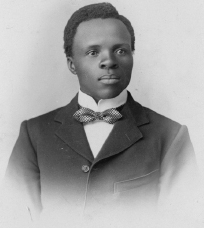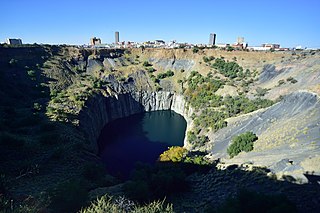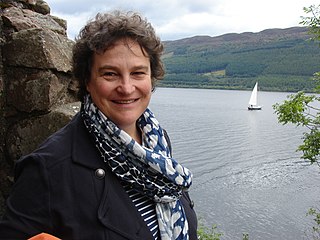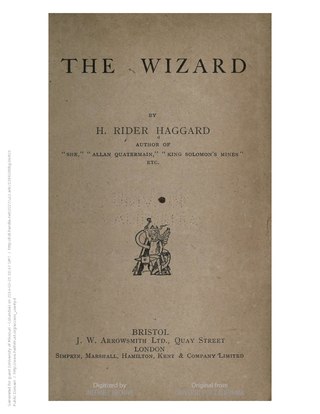Related Research Articles

Sir Henry Rider Haggard was an English writer of adventure fiction romances set in exotic locations, predominantly Africa, and a pioneer of the lost world literary genre. He was also involved in land reform throughout the British Empire. His stories, situated at the lighter end of Victorian literature, continue to be popular and influential.

Eileen Mary Challans, known by her pen name Mary Renault, was an English writer best known for her historical novels set in ancient Greece.

Solomon Tshekisho Plaatje was a South African intellectual, journalist, linguist, politician, translator and writer. Plaatje was a founding member and first General Secretary of the South African Native National Congress (SANNC), which became the African National Congress (ANC). The Sol Plaatje Local Municipality, which includes the city of Kimberley, is named after him, as is the Sol Plaatje University in that city, which opened its doors in 2014.

Kimberley is the capital and largest city of the Northern Cape province of South Africa. It is located approximately 110 km east of the confluence of the Vaal and Orange Rivers. The city has considerable historical significance due to its diamond mining past and the siege during the Second Anglo-Boer war. British businessmen Cecil Rhodes and Barney Barnato made their fortunes in Kimberley, and Rhodes established the De Beers diamond company in the early days of the mining town.

She, subtitled A History of Adventure, is a novel by the English writer H. Rider Haggard, published in book form in 1887 following serialisation in The Graphic magazine between October 1886 and January 1887. She was extraordinarily popular upon its release and has never been out of print.

South Africa is known for its ethnic and cultural diversity. Amongst black South Africans, a substantial number of rural inhabitants lead largely impoverished lives. Almost all South Africans speak English to some degree of proficiency, in addition to their native language, with English acting as a lingua franca in commerce, education, and government. South Africa has eleven official languages, but other indigenous languages are also spoken by smaller groups, chiefly Khoisan languages.
Postcolonial literature is the literature by people from formerly colonized countries, originating from all continents except Antarctica. Postcolonial literature often addresses the problems and consequences of the decolonization of a country, especially questions relating to the political and cultural independence of formerly subjugated people, and themes such as racialism and colonialism. A range of literary theory has evolved around the subject. It addresses the role of literature in perpetuating and challenging what postcolonial critic Edward Said refers to as cultural imperialism.

Marlene van Niekerk is a South African poet, writer, and academic. She is best known for her novels, the satirical tragicomedy Triomf (1994) and the Herzog-winning Agaat (2004), which explore themes including the family, the change in power dynamics occasioned by the end of Apartheid, and inequalities of race, gender, and class. Van Niekerk is also an award-winning poet. She writes in her native tongue, Afrikaans, and teaches at Stellenbosch University.
The lost world is a subgenre of the fantasy or science fiction genres that involves the discovery of an unknown Earth civilization. It began as a subgenre of the late-Victorian adventure romance and remains popular into the 21st century.

The World's Desire is a fantasy novel first published in 1890 and written by H. Rider Haggard and Andrew Lang. It was published in paperback by Ballantine Books as the fortieth volume of the Ballantine Adult Fantasy series in January 1972.

The Natives Land Act, 1913 was an Act of the Parliament of South Africa that was aimed at regulating the acquisition of land. According to the Encyclopædia Britannica: "The Natives’ Land Act of 1913 defined less than one-tenth of South Africa as Black “reserves” and prohibited any purchase or lease of land by Blacks outside the reserves. The law also restricted the terms of tenure under which Blacks could live on white-owned farms."

South African literature is the literature of South Africa, which has 11 national languages: Afrikaans, English, Zulu, Xhosa, Sotho, Pedi, Tswana, Venda, Swazi, Tsonga and Ndebele.
Adriaan Donker was a pioneering South African publisher.

The Wizard is a novel by Henry Rider Haggard, first published by Longmans, Green, and Co., in 1896. The Wizard is one of the many examples of imperialist literature. According to Rebecca Stott, author of the article “The Dark Continent: Africa as Female Body in Haggard’s Adventure Fiction,” Haggard's fiction is still popular today and attempts to expose a “cultural and historical definition of white masculinity at its most rugged and its most terrified.”

Jacob Dlamini is a South African journalist, historian and author. He is currently an assistant professor of history at Princeton University, specialising in African history. He has written four books about South African political and social history, each of which seeks to complicate popular narratives about Apartheid and black experience in South Africa.
And a Threefold Cord is a 1964 novel by South African novelist Alex la Guma. The novel is La Guma's second, and is not heavily reviewed by critics. The novel is set in the Cape Flats, an impoverished area near Cape Town.

Tsala ea Batho / Tsala ea Becauna was a Tswana and English language newspaper based in Kimberly, Cape Province, between 1910 and 1915. It was a politically nonpartisan newspaper, running topical news and opinions that would interest black people in South Africa.
Postcolonial theology is the application of postcolonial criticism to Christian theology. As is in postcolonial discourse, the term postcolonial is used without a hyphen, denoting an intellectual reaction against the colonial, instead of being merely sequential to it.
Bhekizizwe Peterson was a prominent African intellectual born in Alexandra Township in Johannesburg, South Africa. Until his passing, he was a Professor of African Literature at University of the Witwatersrand. Peterson was also an internationally renowned film writer and producer. He co-founded Natives at Large, a black owned and controlled South African full service Film & Television production company.

The type of romance considered here is mainly the genre of novel defined by the novelist Walter Scott as "a fictitious narrative in prose or verse; the interest of which turns upon marvellous and uncommon incidents", in contrast to mainstream novels which realistically depict the state of a society. These works frequently, but not exclusively, take the form of the historical novel. Scott's novels are also frequently described as historical romances, and Northrop Frye suggested "the general principle that most 'historical novels' are romances". Scott describes romance as a "kindred term", and many European languages do not distinguish between romance and novel: "a novel is le roman, der Roman, il romanzo".
References
- 1 2 Chennells, Anthony (1 May 1997). "Plotting South African History: Narrative in Sol Plaatje's "Mhudi"". English in Africa. 24 (1): 37–58. ISSN 0376-8902. JSTOR 40238835.
- 1 2 Sanders, Mark (25 December 2002). "Sol T Plaatje:The Essential Interpreter". Complicities: The Intellectual and Apartheid. Duke University Press. pp. 40–60. ISBN 978-0822329985. R. R. R. Dhlomo's novella An African Tragedy (1928) consequently preceded it in publication.